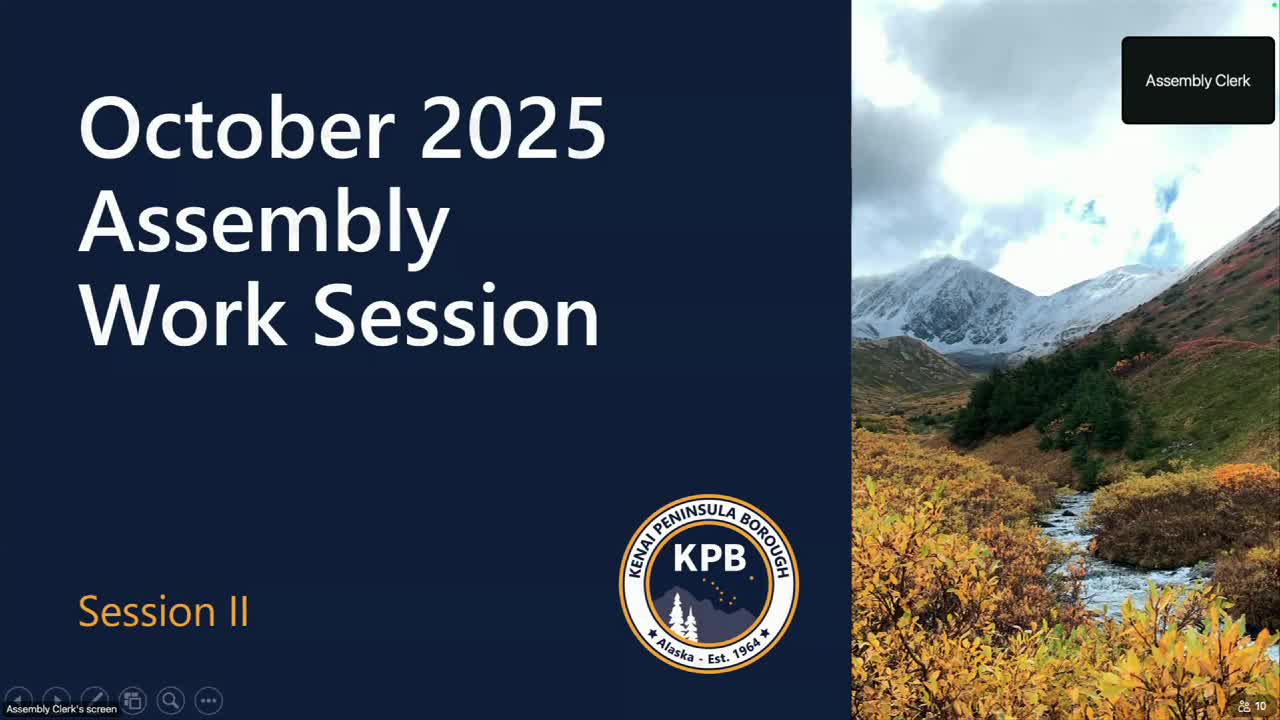Borough attorney urges caution on Open Meetings Act compliance and conflicts of interest
Get AI-powered insights, summaries, and transcripts
Subscribe
Summary
Kenai Peninsula Borough Attorney Sean Kelly and Clerk Michelle Turner reviewed Open Meetings Act rules, teleconferencing, serial communications and conflict-of-interest procedures for assembly members.
Borough Attorney Sean Kelly told new assembly members that the Open Meetings Act requires openness and warned that certain informal interactions can trigger violations if they involve more than three members and discussion of a matter the assembly could act upon.
Kelly said the law intends transparency so the public can know the "who, what, when, why and how" of actions taken by the assembly and described common pitfalls such as serial communications, replying-all to email chains and private group social media exchanges.
"You can certainly be in the same place at the same time, but you just can't start talking about, you know, an ordinance or resolution that's come that is currently before the body," Kelly said, adding that "there's a reality verse theory" element to social events where members might inadvertently discuss assembly business.
Clerk Michelle Turner and Kelly both advised members to forward materials to the clerk if they want the entire body to receive them rather than circulating material informally; Turner said the clerk will distribute and preserve those items in the official record. "I'm happy to distribute any materials or emails or comments to the body as a whole," she said.
On conflicts of interest, Kelly advised members to disclose financial or other interests early and to seek guidance from staff before an item comes to the floor. He summarized the borough's code: members must not participate in or vote on matters where they have a substantial financial interest, and the presiding officer may rule on recusal requests (a majority of the body can overrule the presiding officer).
"When in doubt, shout it out," Kelly said, quoting a former deputy borough attorney as a practical rule for members to follow on potential conflicts.
Why it matters: inadvertent violations of the Open Meetings Act or failure to recuse for an applicable conflict can void actions and undermine public trust. Kelly noted that remedies under state law generally aim to cure defects and that Alaska does not impose criminal or monetary penalties for Open Meetings Act violations, though a violation can render an action voidable and exposes officials to political remedies such as recall.
The presenters reviewed allowable uses of executive sessions (litigation strategy, personnel matters, negotiations) and said motions to convene an executive session must identify the subject without defeating the confidentiality purpose. Kelly said that matters discussed in executive session remain confidential and that the individual subject to a personnel discussion can require a public discussion.
